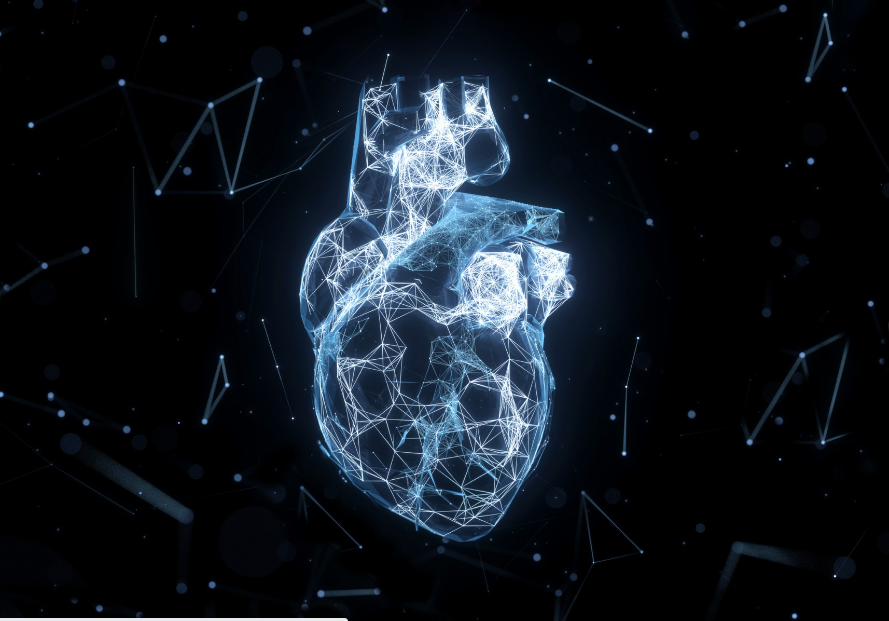
A new Smidt Heart Institute study published in Nature showed that artificial intelligence was an expert in assessing and diagnosing cardiac function by analyzing echocardiogram images. Image Credit: Getty
The study questions who can assess and diagnose cardiac function best following the reading of an echocardiogram: artificial intelligence (AI) or a sonographer?
As per the Cedars-Sinai investigators and their research reported currently in the renowned journal Nature, AI proved o be excellent in evaluating and diagnosing cardiac function in comparison with echocardiogram assessments made by sonographers.
The outcomes depend on a first-ever, blinded, randomized clinical trial of AI in cardiology headed by investigators in the Smidt Heart Institute and the Division of Artificial Intelligence in Medicine at Cedars-Sinai.
The results have immediate implications for patients undergoing cardiac function imaging as well as broader implications for the field of cardiac imaging. This trial offers rigorous evidence that utilizing AI in this novel way can improve the quality and effectiveness of echocardiogram imaging for many patients.
David Ouyang, MD, Study Senior Author Principal Investigator, Cardiologist, Cedars-Sinai
Investigators feel positive that this technology will be found useful when deployed throughout the clinical system at Cedars-Sinai and health systems throughout the world.
This successful clinical trial sets a superb precedent for how novel clinical AI algorithms can be discovered and tested within health systems, increasing the likelihood of seamless deployment for improved patient care.
Sumeet Chugh, MD, Director, Division of Artificial Intelligence in Medicine and the Pauline and Harold Price Chair in Cardiac Electrophysiology Research, Cedars-Sinai
In 2020, scientists at the Smidt Heart Institute and Stanford University came up with one of the first AI technologies to evaluate cardiac function, particularly left ventricular ejection fraction—the main heart measurement utilized in diagnosing cardiac function. Their research also was reported in the journal Nature.
Taking advantage of such findings, the new study evaluated if AI was highly accurate in assessing 3,495 transthoracic echocardiogram studies by making a comparison of initial assessment by AI or by a sonographer—also called an ultrasound technician.
Among the findings:
- Cardiologists more often agreed with the AI initial evaluation and made corrections to just 16.8% of the initial assessments made by AI.
- Corrections were made by cardiologists to 27.2% of the initial assessments made by the sonographers.
- The time of cardiologists and sonographers was saved by AI assistance
- The physicians were incapable to tell which evaluations were made by sonographers and which were made by AI.
We asked our cardiologists to guess if the preliminary interpretation was performed by AI or by a sonographer, and it turns out that they couldn’t tell the difference. This speaks to the strong performance of the AI algorithm as well as the seamless integration into clinical software. We believe these are all good signs for future AI trial research in the field.
David Ouyang, MD, Study Senior Author Principal Investigator, Cardiologist, Cedars-Sinai
The belief, Ouyang says, is to save clinicians time and reduce the highly tedious parts of the cardiac imaging workflow. But the cardiologist remains to be the final expert adjudicator of the AI model output.
Also, the clinical trial and following published research help gain insight into the chance for regulatory approvals.
“This work raises the bar for artificial intelligence technologies being considered for regulatory approval, as the Food and Drug Administration has previously approved artificial intelligence tools without data from prospective clinical trials,” stated Susan Cheng, MD, MPH, director of the Institute for Research on Healthy Aging in the Department of Cardiology at the Smidt Heart Institute and co-senior author of the study.
Cheng added, “We believe this level of evidence offers clinicians extra assurance as health systems work to adopt artificial intelligence more broadly as part of efforts to increase efficiency and quality overall.”
Journal Reference
He, B., et al. (2023) Blinded, randomized trial of sonographer versus AI cardiac function assessment. Nature. https://doi.org/10.1038/s41586-023-05947-3.